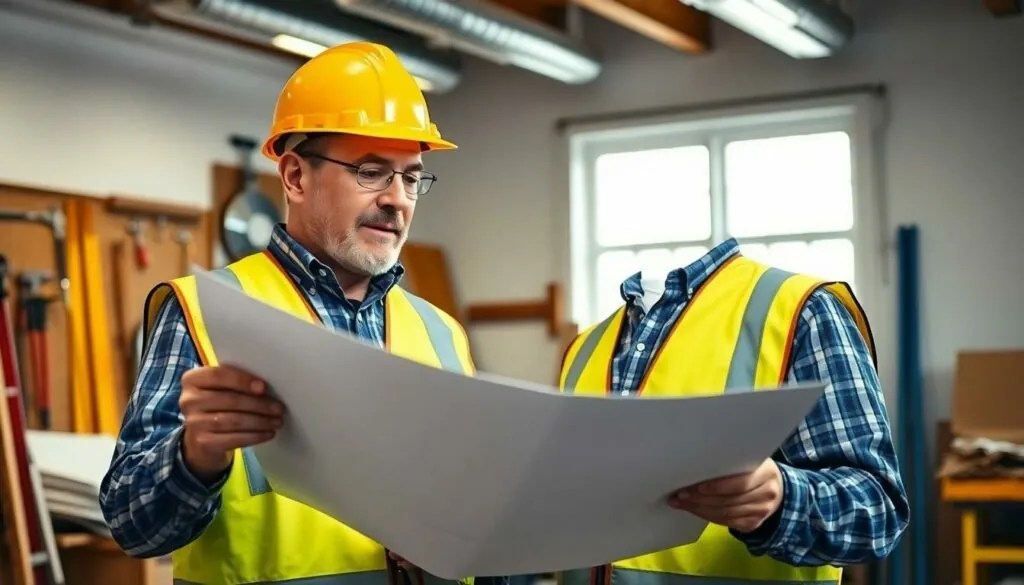Table of Contents
ToggleThinking about tackling that long-awaited home improvement project in Pennsylvania? Before grabbing a hammer and diving in, it’s crucial to know the ins and outs of the home improvement contractor license. After all, nobody wants to turn their dream kitchen into a DIY disaster that even the neighbors can’t ignore.
In PA, having the right license isn’t just a formality; it’s a ticket to credibility and trust. It’s like having a superhero cape that says, “I know what I’m doing!” Whether it’s a simple bathroom upgrade or a full-blown renovation, understanding licensing requirements can save time, money, and a few gray hairs. So let’s break down what it takes to get licensed and keep your project on the right track.
Overview of Home Improvement Contractor License PA
Home improvement contractors in Pennsylvania need a license to legally operate. This requirement ensures that contractors adhere to local and state regulations. The Pennsylvania Attorney General’s Office oversees licensing in the home improvement sector, which includes various service categories.
A licensed contractor can offer credibility and assurance to homeowners. Licensing signifies that the contractor meets specific standards in training and experience. In Pennsylvania, it’s vital for contractors to register with the Attorney General to conduct home improvement work.
To obtain a home improvement contractor license, applicants must complete an application that includes details about their business and relevant experience. Additionally, a background check and insurance documentation may be necessary. Maintaining a valid license requires compliance with state laws, ensuring ongoing education and adherence to safety regulations.
Penalties may arise from operating without a proper license. These can include fines, legal action, or a complete ban from performing home improvement work. Understanding these regulations helps contractors avoid legal complications while providing quality service to homeowners.
For homeowners, checking a contractor’s license before starting a project is essential. This verification can prevent issues with quality and safety standards. By choosing a licensed contractor, homeowners ensure their project is in capable hands and protect themselves from potential liabilities.
Requirements for Obtaining a License

Obtaining a home improvement contractor license in Pennsylvania involves specific criteria essential for compliance and credibility. Understanding these requirements helps streamline the licensing process.
Age and Experience Requirements
Applicants must be at least 18 years old to qualify for a license. Relevant experience in home improvement projects is crucial, often requiring proof of a minimum duration in the field. Proven experience can include working as an apprentice, laborer, or in supervisory roles within home construction. Documentation of experience reinforces the application, showcasing the contractor’s skills. Candidates without sufficient experience may face challenges moving forward in the licensing process.
Application Process
The application process involves several critical steps. First, applicants must complete a licensing application form available through the Pennsylvania Attorney General’s Office. A background check is a necessary component, aimed at ensuring the applicant’s character and integrity. Essential documentation includes proof of liability insurance, signifying financial responsibility. Some applicants may consider submitting references from previous clients or employers to enhance their applications. Following submission, the review process determines eligibility, which can take several weeks. Staying informed about the status of the application aids in planning for subsequent projects.
Types of Home Improvement Licenses
Understanding the types of licenses can help clarify the requirements for contractors in Pennsylvania. Different licenses cater to varying scopes of work and specializations within the home improvement industry.
Residential vs. Commercial Licenses
Residential licenses allow contractors to work on home projects, such as renovations or repairs. Most homeowners seek residential contractors for personal property improvements. However, commercial licenses enable contractors to tackle larger-scale projects, such as office buildings or retail spaces. These projects often involve different codes and standards. Obtaining a commercial license requires a higher level of experience and compliance with specific regulations. Contractors must assess their focus area to choose the appropriate license that aligns with their business goals.
Specialty Licenses
Specialty licenses target specific trades within home improvement. Examples include plumbing, electrical, or HVAC installation. These licenses ensure contractors possess the necessary expertise and adhere to relevant safety codes. Contractors seeking a specialty license must complete training or apprenticeship programs relevant to their field. They may need to pass specialized exams to demonstrate competency. Homeowners should look for licensed specialists for particular tasks, guaranteeing adherence to industry standards. Such specialized licenses enhance a contractor’s credibility and instill confidence in their skills.
Benefits of Hiring Licensed Contractors
Hiring licensed contractors ensures compliance with legal and safety standards, providing peace of mind during home improvement projects. Various advantages support the decision to engage professionals with valid licenses.
Legal Protections
Legal protections play a significant role when hiring licensed contractors. Individuals gain access to recourse options in case of disputes, ensuring adherence to consumer protection laws. Licensed contractors must follow strict regulations, minimizing risks related to shoddy workmanship. Licensing also enforces liability insurance requirements, which protect homeowners from potential damages or injuries during renovations. When issues arise, licensed contractors often provide legitimate guarantees that protect consumer investments. Obtaining a contract with verifiable documentation enhances security, allowing homeowners to feel confident in their professional choice.
Quality Assurance
Quality assurance remains a key factor when selecting licensed contractors. Contractors undergo extensive training and education, which equips them with the necessary skills and knowledge to execute projects effectively. Moreover, licensed professionals stay updated on industry standards, ensuring compliance with current building codes. Homeowners can expect higher craftsmanship and workmanship through experienced contractors. Their commitment to quality translates into safer, more durable renovations that stand the test of time. Engaging licensed contractors also implies access to higher-quality materials, ultimately enhancing the longevity and aesthetics of home improvements.
Common Challenges in the Licensing Process
Navigating the licensing process for home improvement contractors in Pennsylvania presents several challenges. Understanding the requirements can be overwhelming, especially for those unfamiliar with state regulations. Applicants frequently encounter difficulties in gathering necessary documentation, such as proof of insurance and references from previous clients.
Completing the application itself often leads to confusion. Many applicants find the forms complex and may misinterpret certain sections, leading to delays. Additionally, the background check process can take time, causing further frustration and potential interruptions in business operations.
Meeting the experience criteria can pose another hurdle. Contractors with limited prior work experience may struggle to demonstrate sufficient qualifications. Finding ways to prove relevant experience becomes essential for those new to the field.
Adhering to ongoing education requirements is also vital for maintaining a license. Contractors must stay informed about changes in laws and regulations, which can be a challenge given the evolving nature of the home improvement industry. Missing educational opportunities could jeopardize license renewal.
Lastly, the review timeline for applications can be lengthy. Applicants often face uncertainty while waiting for approval, which can delay project start dates. Staying proactive and informed improves the chances of navigating these challenges effectively.
Successful navigation of these common issues ultimately leads to a licensed contractor capable of providing high-quality, compliant services in Pennsylvania’s home improvement market.
Navigating the home improvement contractor licensing process in Pennsylvania is vital for both contractors and homeowners. A licensed contractor not only ensures compliance with state regulations but also provides peace of mind through quality assurance and legal protections. Homeowners benefit from hiring licensed professionals who adhere to industry standards and possess the necessary expertise.
For contractors, understanding the licensing requirements is essential for establishing credibility in a competitive market. By staying informed about the application process and ongoing education, they can overcome challenges and thrive in their field. Ultimately, investing time in proper licensing leads to successful home improvement projects that meet both aesthetic and safety standards.







